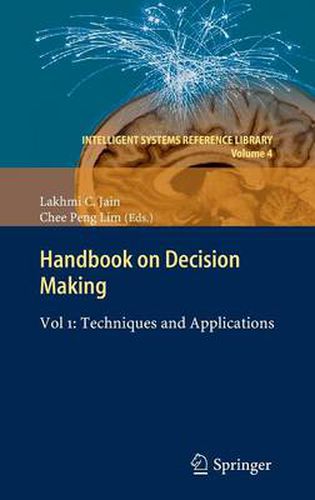Readings Newsletter
Become a Readings Member to make your shopping experience even easier.
Sign in or sign up for free!
You’re not far away from qualifying for FREE standard shipping within Australia
You’ve qualified for FREE standard shipping within Australia
The cart is loading…






This title is printed to order. This book may have been self-published. If so, we cannot guarantee the quality of the content. In the main most books will have gone through the editing process however some may not. We therefore suggest that you be aware of this before ordering this book. If in doubt check either the author or publisher’s details as we are unable to accept any returns unless they are faulty. Please contact us if you have any questions.
Decision making arises when we wish to select the best possible course of action from a set of alternatives. With advancements of the digital technologies, it is easy, and almost instantaneous, to gather a large volume of information and/or data pertaining to a problem that we want to solve. For instance, the world-wi- web is perhaps the primary source of information and/or data that we often turn to when we face a decision making problem. However, the information and/or data that we obtain from the real world often are complex, and comprise various kinds of noise. Besides, real-world information and/or data often are incomplete and ambiguous, owing to uncertainties of the environments. All these make decision making a challenging task. To cope with the challenges of decision making, - searchers have designed and developed a variety of decision support systems to provide assistance in human decision making processes. The main aim of this book is to provide a small collection of techniques stemmed from artificial intelligence, as well as other complementary methodo- gies, that are useful for the design and development of intelligent decision support systems. Application examples of how these intelligent decision support systems can be utilized to help tackle a variety of real-world problems in different - mains, e. g. business, management, manufacturing, transportation and food ind- tries, and biomedicine, are also presented. A total of twenty chapters, which can be broadly divided into two parts, i. e.
$9.00 standard shipping within Australia
FREE standard shipping within Australia for orders over $100.00
Express & International shipping calculated at checkout
This title is printed to order. This book may have been self-published. If so, we cannot guarantee the quality of the content. In the main most books will have gone through the editing process however some may not. We therefore suggest that you be aware of this before ordering this book. If in doubt check either the author or publisher’s details as we are unable to accept any returns unless they are faulty. Please contact us if you have any questions.
Decision making arises when we wish to select the best possible course of action from a set of alternatives. With advancements of the digital technologies, it is easy, and almost instantaneous, to gather a large volume of information and/or data pertaining to a problem that we want to solve. For instance, the world-wi- web is perhaps the primary source of information and/or data that we often turn to when we face a decision making problem. However, the information and/or data that we obtain from the real world often are complex, and comprise various kinds of noise. Besides, real-world information and/or data often are incomplete and ambiguous, owing to uncertainties of the environments. All these make decision making a challenging task. To cope with the challenges of decision making, - searchers have designed and developed a variety of decision support systems to provide assistance in human decision making processes. The main aim of this book is to provide a small collection of techniques stemmed from artificial intelligence, as well as other complementary methodo- gies, that are useful for the design and development of intelligent decision support systems. Application examples of how these intelligent decision support systems can be utilized to help tackle a variety of real-world problems in different - mains, e. g. business, management, manufacturing, transportation and food ind- tries, and biomedicine, are also presented. A total of twenty chapters, which can be broadly divided into two parts, i. e.